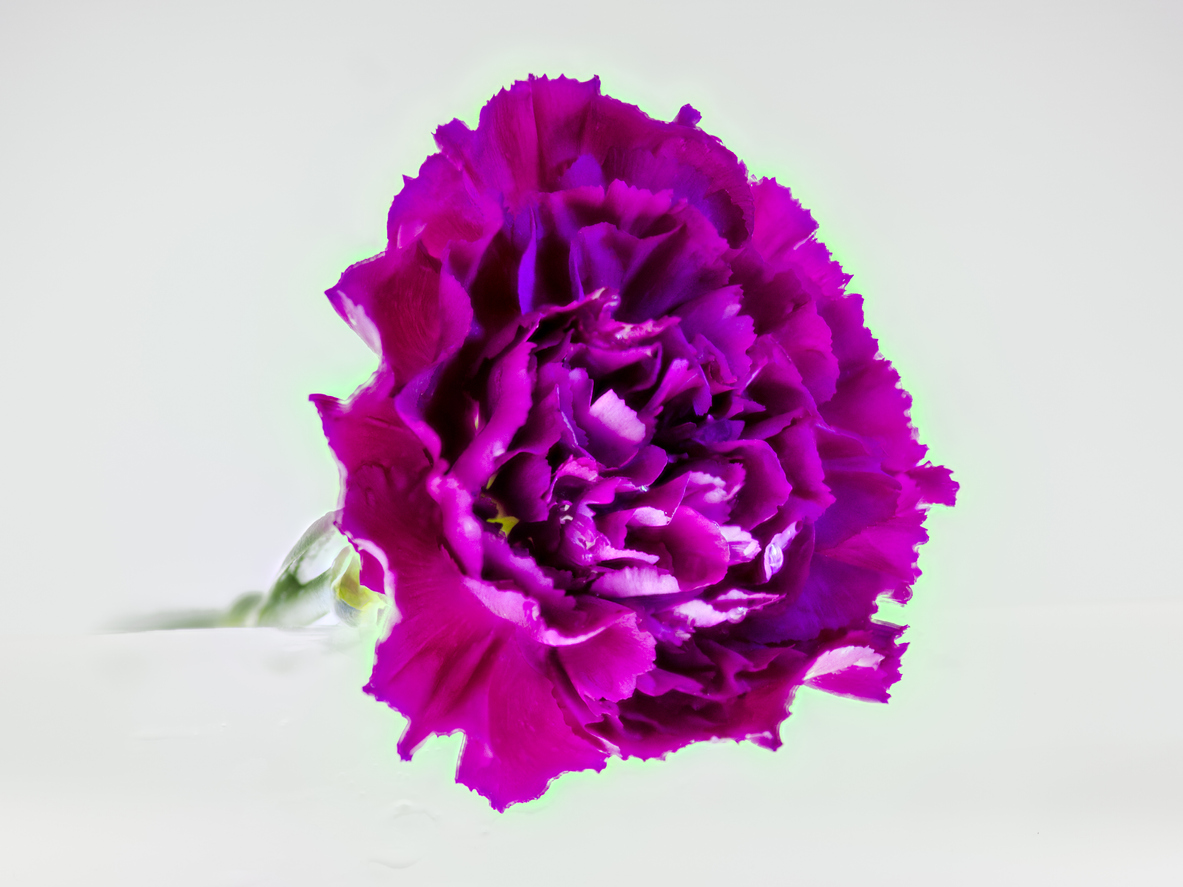
GMO Panel Finds GM Carnation Does Not Pose Risk To Health, Environment
August 18, 2021| |
After a careful evaluation of the genetically modified (GM) carnation SHD-27531-4, the Norwegian Scientific Committee for Food Safety Panel on Genetically Modified Organisms (VKM GMO Panel) concluded that the transgenic plant does not represent any environmental risk in Norway.
The GM carnation is a transgenic variety of Dianthus caryophyllus L. that is used as a decorative species. Its flowers' red-purple color is the result of the expression of the newly introduced genes dihydroflavonol 4reductase (DFR) enzymes, and flavonoid 3',5'-hydroxylase (f3'5'h). These enzymes enable the production of the anthocyanidins delphinidin and cyanidin in the petals. The GM carnation also contains a mutated herbicide tolerance gene from Nicotiana tabacum, coding for acetolactate synthase (ALS) variant protein to facilitate the selection of GM plantlets during the genetic transformation process. The plant underwent several generations of vegetative propagation and no observed changes in the introduced flower color trait was reported.
The findings of VKM GMO Panel are summarized as:
- The reported morphological differences between SHD 27531-4 and the parent cultivar do not raise safety concerns;
- DFR, f3'5'H, and ALS proteins and anthocyanidin pigments are unlikely to increase potential health risk compared to the non-GM counterpart; and
- The GM carnation is intended as cut ornamental flowers and does not represent an environmental risk in Norway.
| |
You might also like:
- Carnation (Dianthus caryophyllus) GM Events
- Researchers Develop Pale Purplish-Pink Petunia via CRISPR-Cas9
- Orange Poinsettias Developed Using CRISPR-Cas9
Biotech Updates is a weekly newsletter of ISAAA, a not-for-profit organization. It is distributed for free to over 22,000 subscribers worldwide to inform them about the key developments in biosciences, especially in biotechnology. Your support will help us in our mission to feed the world with knowledge. You can help by donating as little as $10.
-
See more articles:
-
News from Around the World
- The Biotech Game: A Negotiation Simulation of Science Diplomacy
- The Impact of Gene Technology in Animal Agriculture and Food Production
- New Genotyping Technology to Boost Africa's Wheat Breeding Programs
- University of Illinois Study Opens Black Box of Herbicide Resistance
- Scientists Work to Improve Crops' Photosynthesis and Yields
- Researchers Develop Technique to Map Out Regulatory Switches in Maize Genome
- Gene to Make Plants Heat-Tolerant in Rising Temperatures Gets Patent
- Philippines on the Right Path With Genome Editing Regulations
- GMO Panel Finds GM Carnation Does Not Pose Risk To Health, Environment
- EFSA GMO Panel: Cotton GHB811 as Safe as Conventional Counterpart
-
Plant
- Researchers Present Prospects for Genome Editing of Potato
- IGI Works on Net-Zero Farming and Carbon Capture
-
Read the latest: - Biotech Updates (February 18, 2026)
- Gene Editing Supplement (January 28, 2026)
- Gene Drive Supplement (February 22, 2023)
-
Subscribe to BU: - Share
- Tweet

